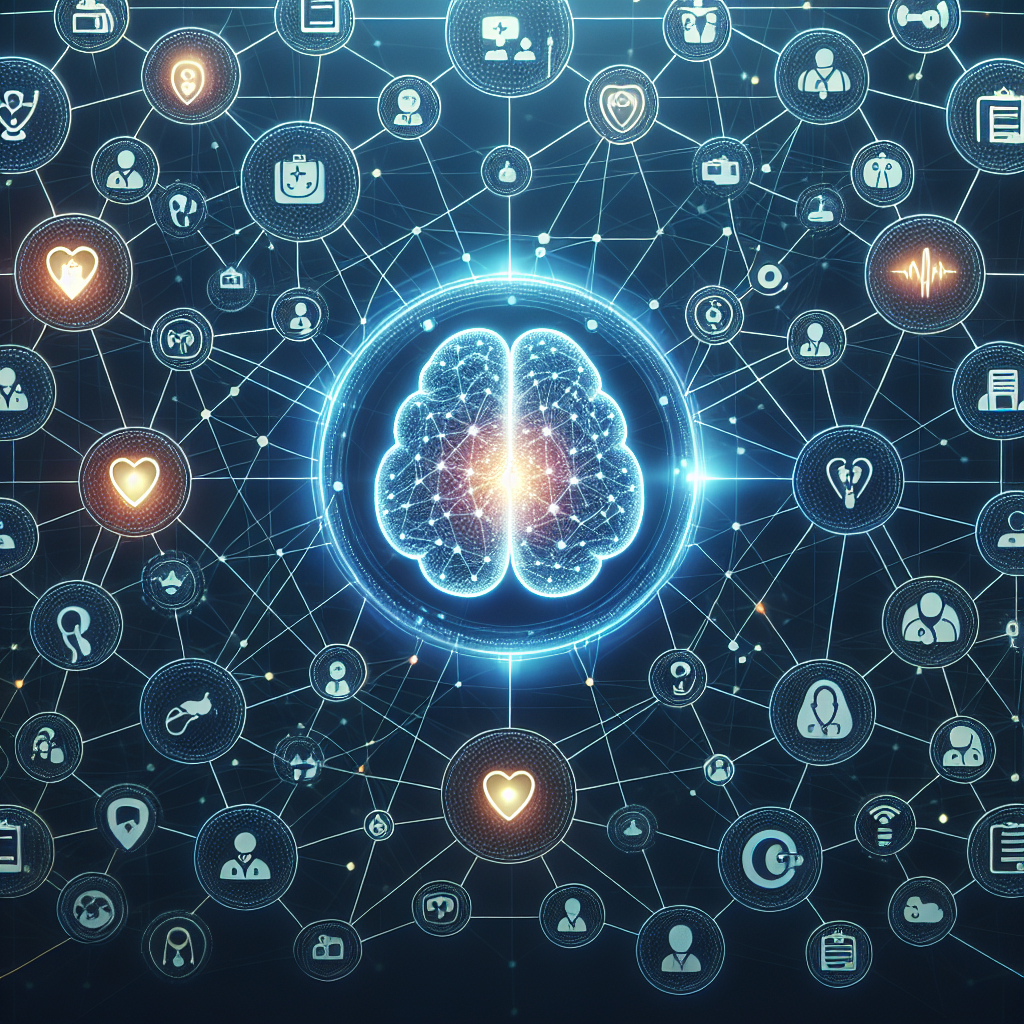The Role of AI Integration in Healthcare Network Development
The healthcare industry has seen significant advancements in recent years with the integration of artificial intelligence (AI) technology. AI has the potential to revolutionize healthcare network development by improving patient care, reducing costs, and increasing efficiency. In this article, we will explore the role of AI integration in healthcare network development and how it is transforming the industry.
1. Improved Patient Care
AI technology has the potential to greatly improve patient care by providing more accurate and timely diagnoses. AI algorithms can analyze large amounts of data, including medical records, lab results, and imaging scans, to identify patterns and trends that may not be immediately apparent to human healthcare providers. This can help healthcare professionals make more informed decisions about patient care and treatment options.
AI can also assist in personalized medicine by analyzing genetic data to tailor treatment plans to individual patients. By considering a patient’s genetic makeup, AI can predict how they may respond to certain medications or treatments, allowing healthcare providers to make more precise and effective decisions.
Furthermore, AI-powered chatbots and virtual assistants can provide patients with immediate access to healthcare information and advice. These virtual assistants can answer common questions, schedule appointments, and provide reminders for medication and follow-up care, improving patient satisfaction and engagement.
2. Cost Reduction
AI integration in healthcare network development can also help reduce costs by streamlining administrative processes and improving operational efficiency. AI-powered software can automate routine tasks such as scheduling appointments, processing insurance claims, and managing patient records, freeing up healthcare providers to focus on patient care.
Additionally, AI can help identify inefficiencies in healthcare processes and suggest ways to improve them. By analyzing data on patient outcomes, resource utilization, and operational workflows, AI can help healthcare organizations identify areas for improvement and optimize their processes to reduce costs and improve quality of care.
3. Increased Efficiency
AI technology can also improve the efficiency of healthcare networks by enabling better communication and coordination among healthcare providers. AI-powered communication platforms can facilitate real-time collaboration between healthcare professionals, allowing them to share information, consult with specialists, and coordinate care more effectively.
Furthermore, AI algorithms can help healthcare providers prioritize and triage patients based on the severity of their condition, ensuring that those in urgent need of care receive prompt attention. This can help reduce wait times, improve patient outcomes, and increase overall efficiency in healthcare delivery.
FAQs
Q: How is AI being used in diagnostic imaging?
A: AI is being used in diagnostic imaging to analyze medical images such as X-rays, CT scans, and MRIs to detect abnormalities and assist healthcare providers in making accurate diagnoses. AI algorithms can analyze images and highlight areas of concern, helping healthcare providers identify potential issues more quickly and accurately.
Q: How does AI help in personalized medicine?
A: AI helps in personalized medicine by analyzing genetic data to predict how individual patients may respond to medications or treatments. By considering a patient’s genetic makeup, AI algorithms can help healthcare providers tailor treatment plans to the specific needs of each patient, improving the effectiveness of treatment and reducing the risk of adverse reactions.
Q: What are some examples of AI-powered healthcare applications?
A: Some examples of AI-powered healthcare applications include virtual assistants for patient engagement, predictive analytics for patient outcomes, and chatbots for customer service. AI is also being used in medical research to analyze large datasets and identify patterns and trends that may lead to new discoveries in healthcare.
In conclusion, AI integration in healthcare network development is transforming the industry by improving patient care, reducing costs, and increasing efficiency. By harnessing the power of AI technology, healthcare organizations can provide better care to patients, streamline administrative processes, and improve communication and coordination among healthcare providers. As AI continues to advance, its role in healthcare network development will only grow, leading to a more efficient and effective healthcare system for all.

